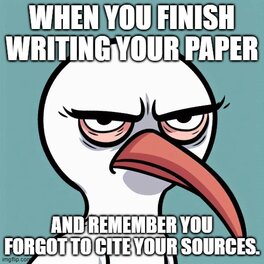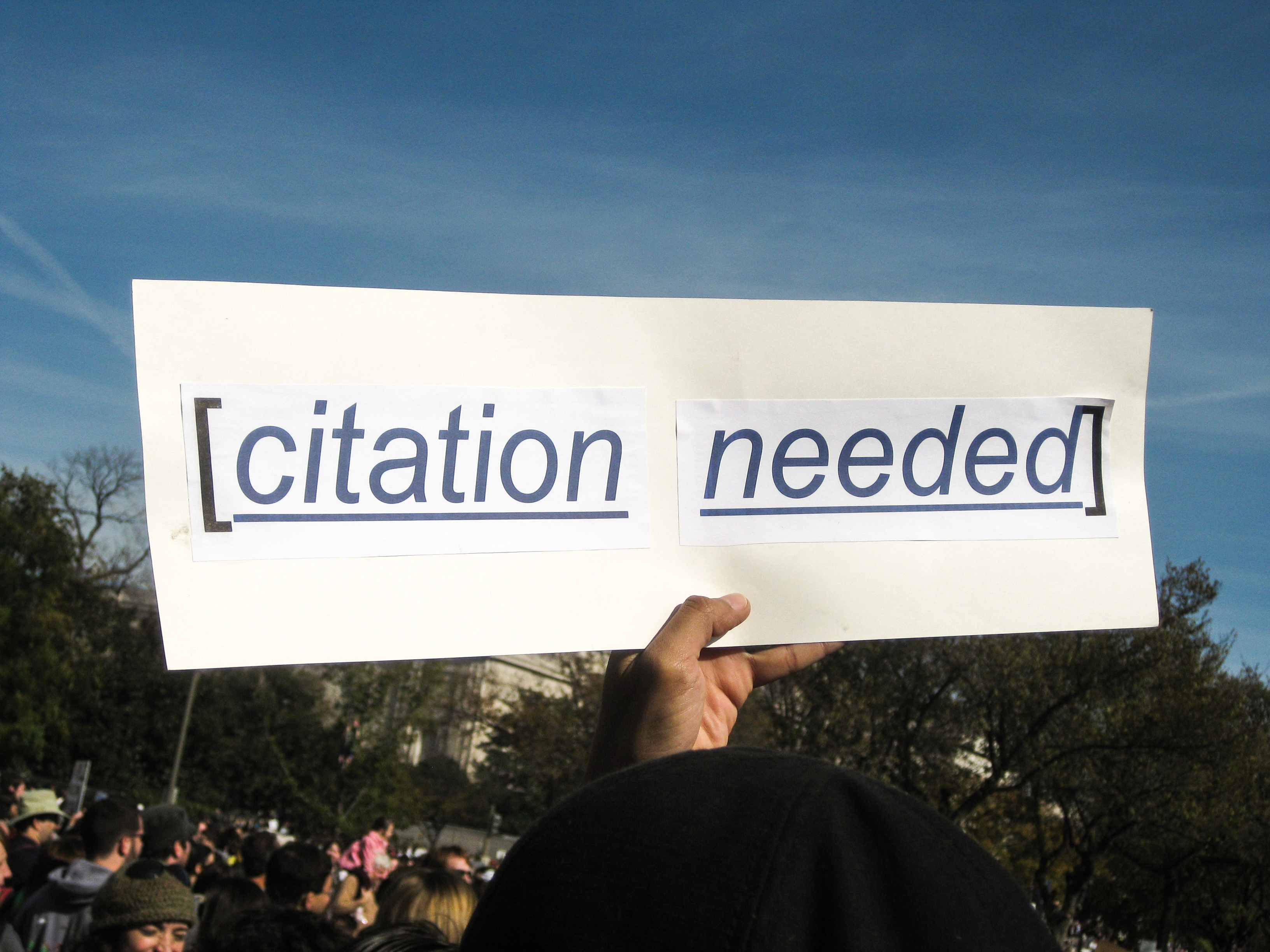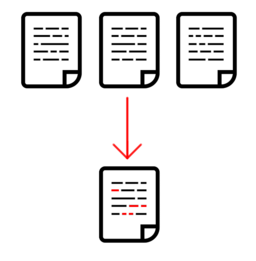Accessibility Options:
Welcome
Welcome to the UM Citation Guide. Whether it is your favorite part of research or the bane of your existence, citing sources is essential. Citation allows you to give proper credit to resources you employ in your work. It permits easy discovery of the original sources you used. Finally, proper use of citations prevents plagiarism! This guide will provide information on citation styles (APA, MLA, AMA, Chicago, Turabian) and citation management systems (EndNote, RefWorks, and Zotero).
Why cite?
- Give proper credit
- Avoid plagiarism
- Helps readers find resources you used
- Provides proof you have done extensive research
Created using Copilot and imgflip

Mendeley Subscription ended January 1, 2024
The Mendeley subscription ended on January 1, 2024. If you do not want to pay for a Mendeley subscription and want to keep all of your stored citations, please transfer your citations to another citation manager such as EndNote, RefWorks, or Zotero. If you have any questions contact reference@med.miami.edu.
Styles
Overview
Citation styles vary and have their own format and rules. It is important when using citation generators or citation managers that you check for accuracy because both can make mistakes. The guides below are excellant resources to check the formatting of your citations and cover APA Style, MLA Style, AMA Style, Chicago Style, and Turabian Style.
APA Style 7th Edition
- APA Formatting and Style Guide Purdue OWL
- Publication manual of the American Psychological Association APA
MLA Style 9th Edition
- MLA Formatting and Style Guide Purdue OWL
- MLA Handbook Modern Language Association of America
Chicago Style 17th Edition
- Chicago Manual of Style Online
- Chicago Manual of Style Purdue OWL
AMA Style 11th Edition
- AMA Manual of Style American Medical Association
ACS Style
IEEE
Turabian Style 9th Edition
- Turabian Style University of Wisconsin-Madison Libraries

What is a Citation Management System?
What is a Citation Management System?
Managing citations for papers can take a lot of time and effort. Citation Management Systems save you time by storing, organizing, and compliling your citations. There are different citation management systems to choose from and you can compare the different managers to pick the right one for you. At UM the three major citation managers are EndNote, RefWorks, and Zotero.
*While Citation Management Systems are powerful tools they are not always accurate so check your citations!
EndNote
- Subscription through UM
- Client- based (access through your computer)
- Web version available
Refworks
- Subscription through UM
- Web-based
Zotero
- Free
- Open source
- Web and Desktop versions availale
EndNote
RefWorks
Zotero
Mendeley Subscription ended on January 1, 2024
The Mendeley subscription ended on January 1, 2024. If you do not want to pay for a Mendeley subscription and want to keep all of your stored citations, please transfer your citations to another citation manager such as EndNote, RefWorks, or Zotero. If you have any questions contact reference@med.miami.edu.
Comparing Citation Managers
What is plagiarism?
To learn more about plagiarism and academic integrity check out the Academic Integrity Policy and the Undergraduate Honor Code.
But what if I use AI?

Reference
AI Citing
Citing sources is an essential activity in academia and provides proper credit to authors. Citing sources allows your reader to find sources you used and also helps combat plagiarism. Citing AI is just as important as citing any other source. Below lists some key facts about citing AI.
APA:
- When a generative AI model is used in the drafting of a manuscript for an APA publication, the use of AI must be disclosed in the methods section and cited.
- AI cannot be named as an author on an APA scholarly publication.
- When AI is cited in an APA scholarly publication, the author must employ the software citation template, which includes specifying in the methods section how, when, and to what extent AI was used. Authors in APA publications are required to upload the full output of the AI as supplemental material.
- Credit AI-generated text when you reproduce its words within your own work.
MLA:
- Cite a generative AI tool whenever you paraphrase, quote, or incorporate into your own work any content (whether text, image, data, or other) that was created by it.
- Acknowledge all functional uses of the tool (like editing your prose or translating words) in a note, your text, or another suitable location.
- Take care to vet the secondary sources it cites.


